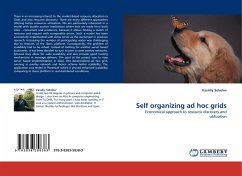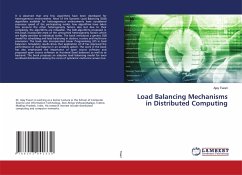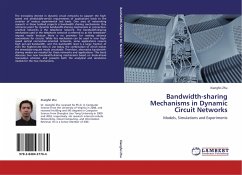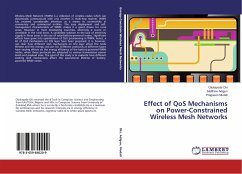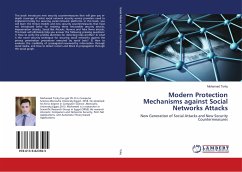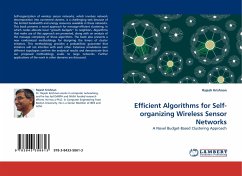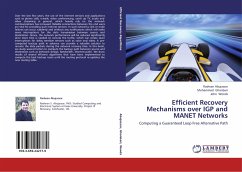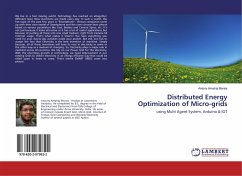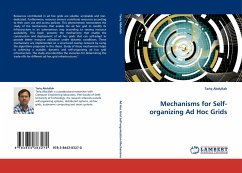
Mechanisms for Self-organizing Ad Hoc Grids
Versandkostenfrei!
Versandfertig in 6-10 Tagen
45,99 €
inkl. MwSt.

PAYBACK Punkte
23 °P sammeln!
Resources contributed in ad hoc grids are volatile, unreliable and non-dedicated. Furthermore, resource owners contribute resources according to their own use and access policies. This phenomenon necessitates the study of the mechanisms that enable the ad hoc grid to modify its infrastructure in an autonomous way according to varying resource availability. This book, presents the mechanisms that enable the construction and deployment of ad hoc grids that can self-adapt to provide better resource utilization under dynamic conditions. These mechanisms are implemented on a structured overlay netw...
Resources contributed in ad hoc grids are volatile, unreliable and non-dedicated. Furthermore, resource owners contribute resources according to their own use and access policies. This phenomenon necessitates the study of the mechanisms that enable the ad hoc grid to modify its infrastructure in an autonomous way according to varying resource availability. This book, presents the mechanisms that enable the construction and deployment of ad hoc grids that can self-adapt to provide better resource utilization under dynamic conditions. These mechanisms are implemented on a structured overlay network by using the algorithms proposed in this thesis. Study of these mechanisms helps in achieving a scalable, dynamic and self-organizing ad hoc grid infrastructure. The study also identifies the scenarios for determining the trade-offs for different ad hoc grid infrastructures."



